8 beautiful images profiling queer Muslim people in England
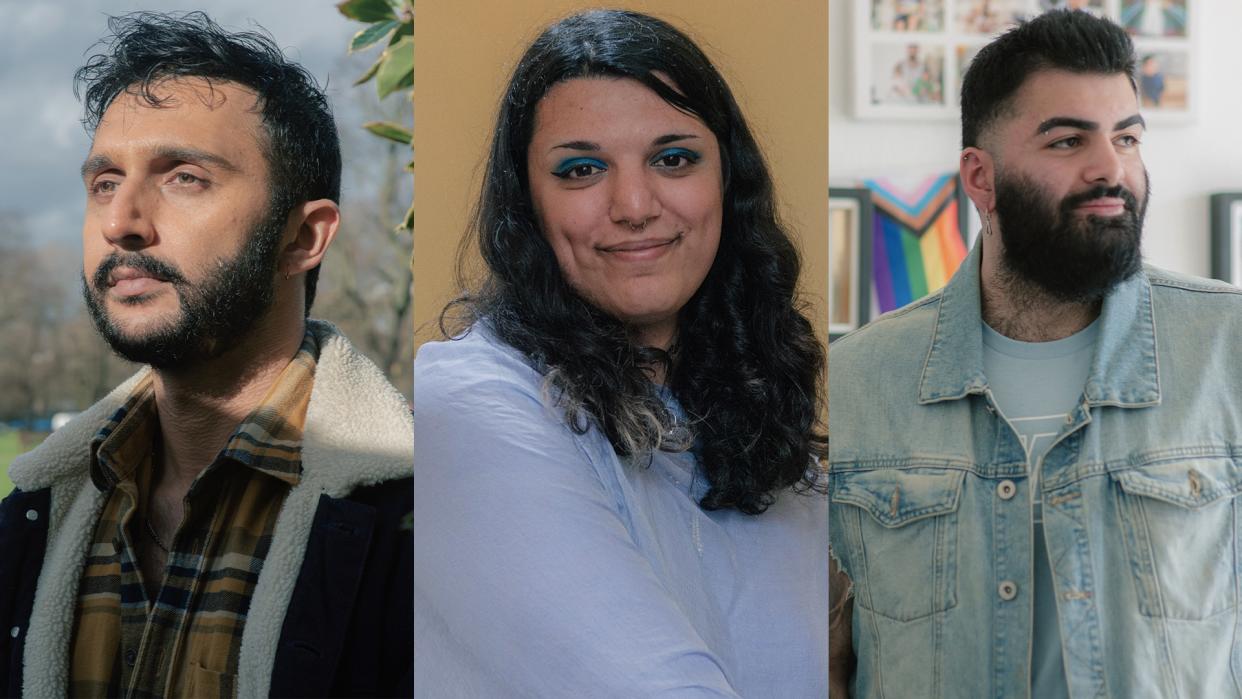
“Habun” is the Arabic word for love, and this project focuses on young queer Muslim people in England. According to the most recent Census, there are more than 3.9 million Muslims in the UK and, according to a 2021 study from the UK-based queer Muslim charity, Hidayah, 42% of Muslim people who identify as LGBTQI+ in the UK are Gen Z or Millennials.
The people I spoke with told me that some Muslim queer people distance themselves from “traditional” cis-heteronormative spaces because they are either pushed away by their religious community or family and that sometimes their relationship with faith is compromised.
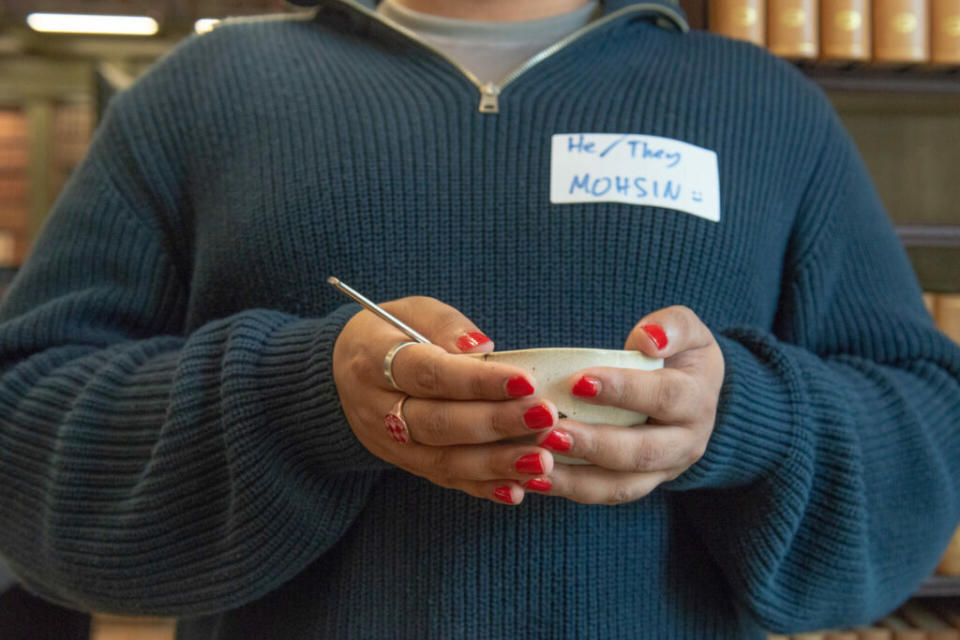
Participants of this project shared stories of hope, fear, discrimination, love, and acceptance. We also discussed their experiences of faith, coming out, taboos, and their relationships with family, culture, and religion.
Some embraced Islam only after later accepting they can be both Muslim and queer. Some discussed the support and acceptance they received when coming out to their families and friends. It has become more evident than ever, that people need to share stories that demonstrate that queer and Muslim identities can co-exist.
Asad, HIV and STI outreach and testing coordinator
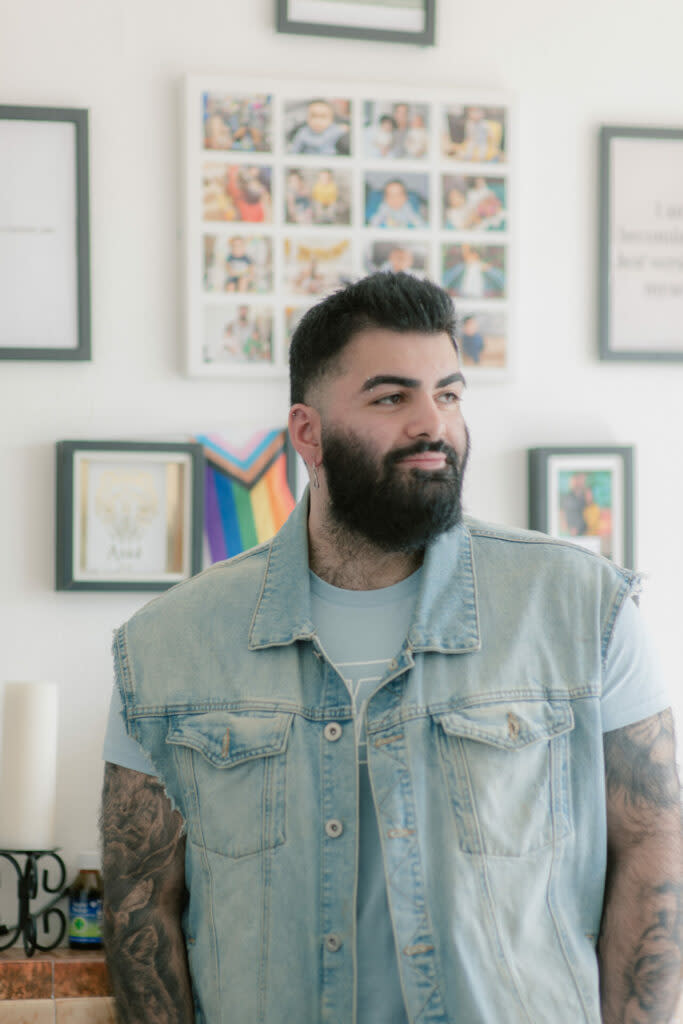
“When I was a kid, my parents forced me into football. I wanted to go to drama school, but I wasn’t allowed. I was living in a shell — a mould made for me. I have greatly changed since then. I am free to be who I am and sometimes I would rather wear a skirt or a dress.
“When I was growing up, I simply didn’t know gay or other LGBTQI+ people existed. There was a gay Muslim character on EastEnders, but when this came up, my parents would quickly flip the channel. In Urdu, the only words for LGBTQI+ people are derogatory.”
El, Actor at the Royal Academy of Music in London
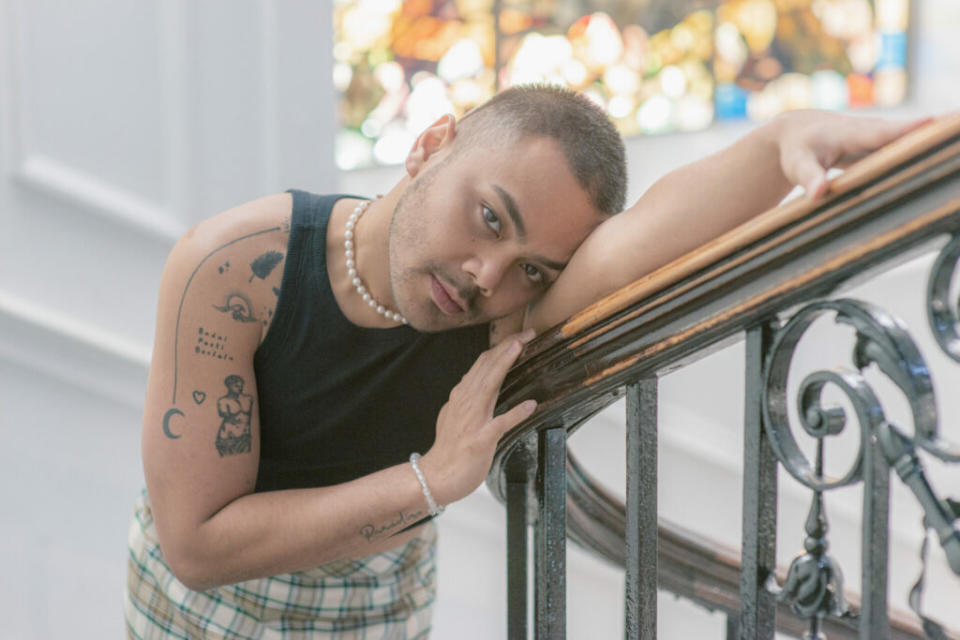
“I never had a coming out, my family would interfere and confront me, and at one point I felt like I needed to confess about who I was. It felt like an intervention. My dad responded by quoting verses from the Quran. They [their family] don’t need to accept me, they just need to understand who I am. I want them to see me as a human being and their child.”
Sara, Actor and teacher
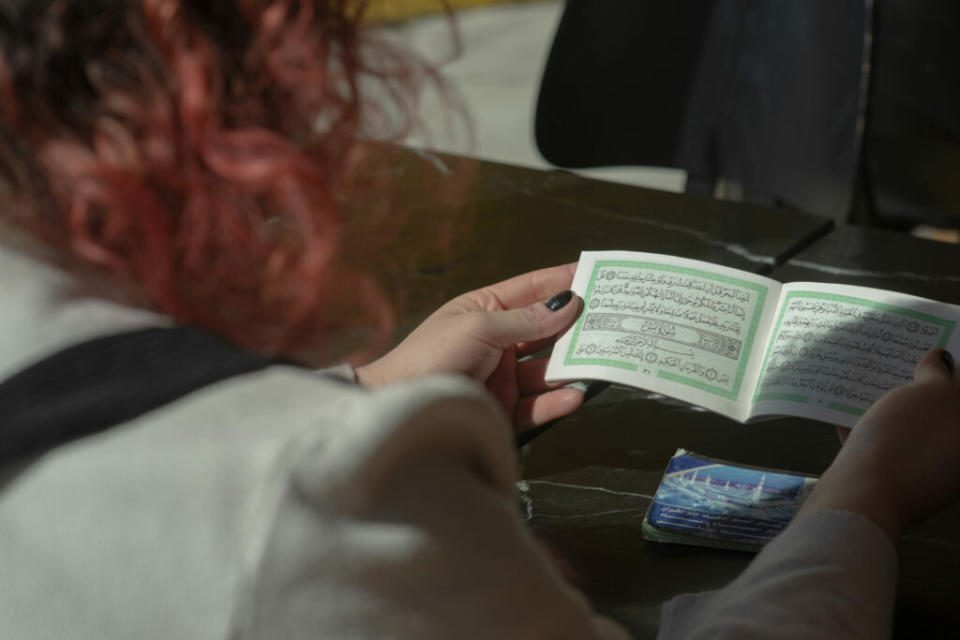
“Lots of people have a preconceived idea of a Muslim, and sometimes I am reluctant to share my faith with some other queer people. People need to understand that Muslims come in all shapes and gender identities. I have a complicated relationship with faith. I question if I should be a Muslim because there is so much homophobia and transphobia and this has led me to question the morality of my own faith at times.”
Qaisar, Community organiser
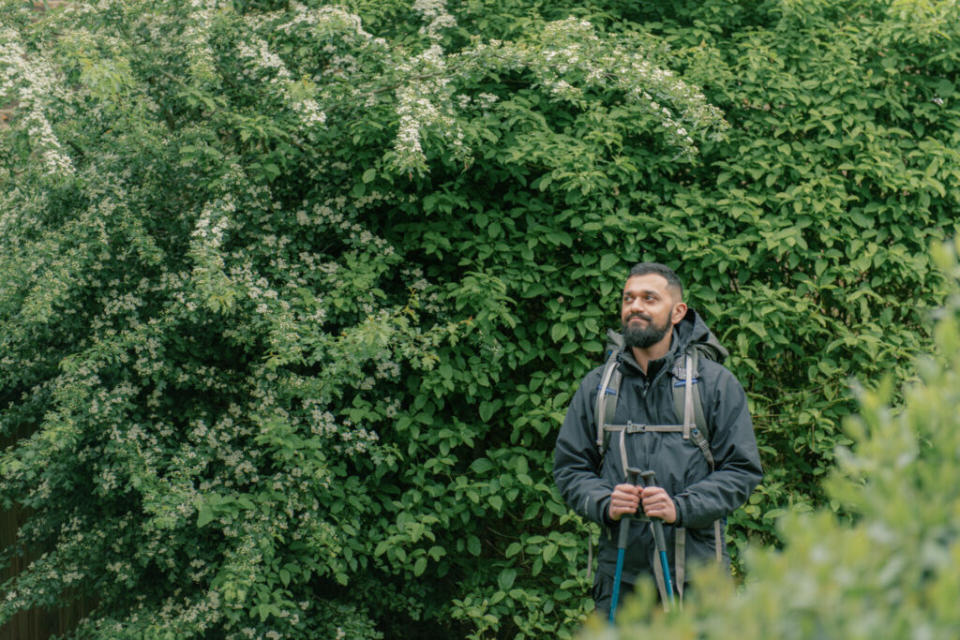
“I came out to my mum after a breakup and it was an incredibly affirmative and positive experience. The coming out process is not the difficult part, the difficult part is living with it. I have been living as the true version of myself for the last 10 years. Self-acceptance is the most important. If you grow up in a self- loathing environment, it can return to hurt you, but you need to find a way to be loving, especially towards yourself.”
Mufseen, Podcaster and accountant
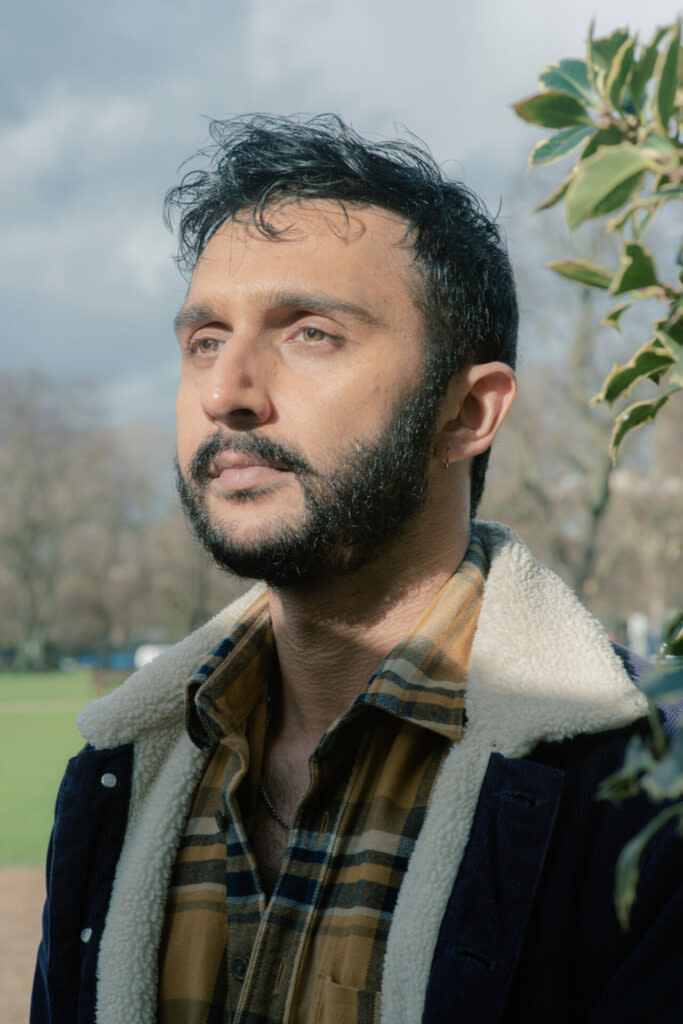
“As a gay person in the closet, you’re always looking over your shoulder in case someone from your family is on the street while you are holding a boy’s hand. I am out now, out and proud and my family know … When I did eventually come out, it wasn’t great, but over time I’ve rebuilt relationships.
“My relationship with my dad is very far from an ideal father-son relationship, but as you get older you accept what you can and can’t change in people. I have really good relationships with my sisters and my brother and there is a lot of acceptance and joy there.”
Hafsa Qureshi, LGBTQ+ activist, writer, and public speaker
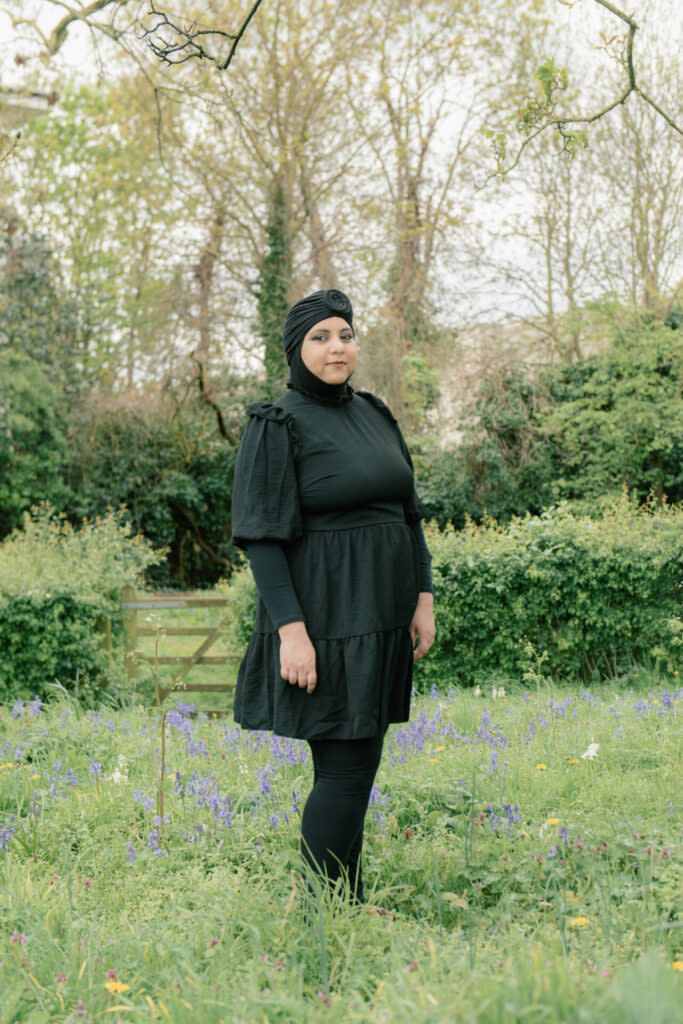
“The biggest challenge is being caught in the middle. It’s difficult to be accepted in Muslim and LGBTQI+ communities. It took me a long time to find spaces where I am accepted for who I am. They include Hidayah or the Inclusive Mosque. From my experience, more Muslim spaces than LGBTQI+ spaces have been inclusive.
“Islam has gotten me through life. In Islam, we believe the community is one, but there are Muslims that I don’t agree with. It is my responsibility as a Muslim to support the planet and other people — all people queer or not. It’s part of my job, my responsibility. I believe in jihad, which is a struggle, balancing who I am as a Muslim and as a queer person, my struggle is explaining myself to people who don’t understand who I am.”
Kamala, Writer
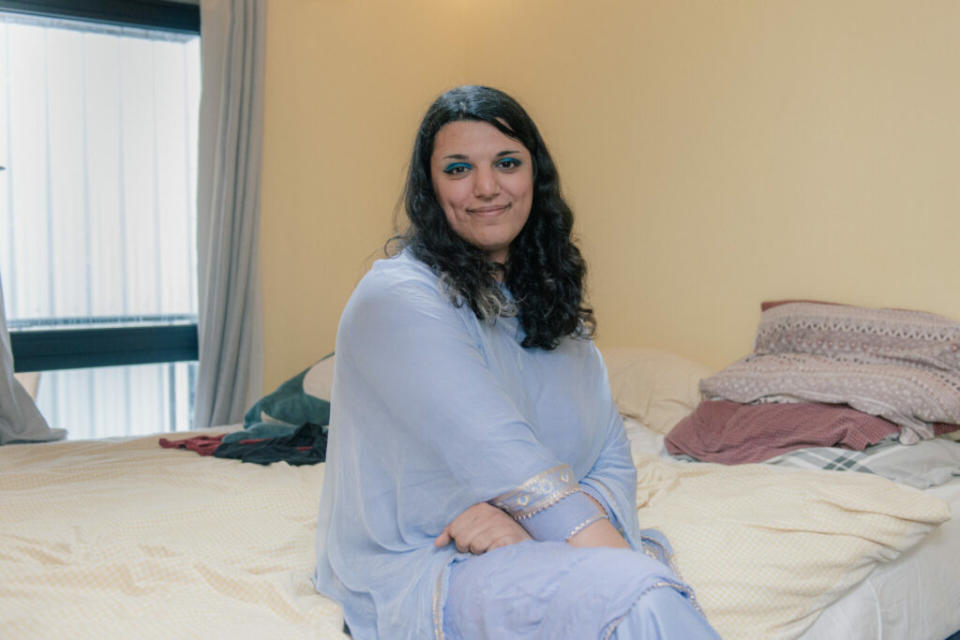
“I have been on a journey with my culture and religion. My first chosen name was Natalie, I did it to distance myself from my culture and religion, but it didn’t feel right. I chose Kamala after Kamala Khan in the Ms Marvel series, she was Marvel’s first Muslim protagonist. After I distanced myself from religion, I got a wider view and I am once again slowly starting to embrace it.
“I am excited to be on this path of self-discovery, I am excited and happy to have found my community, and even by the hormone treatment. After years of losing friends to homophobia, I finally feel at home.”
Zula Rabikowska is a Polish queer photographer and visual artist based in London whose work explores gender identity, queerness, and belonging. Check out more of her work here.
The post 8 beautiful images profiling queer Muslim people in England appeared first on Attitude.


